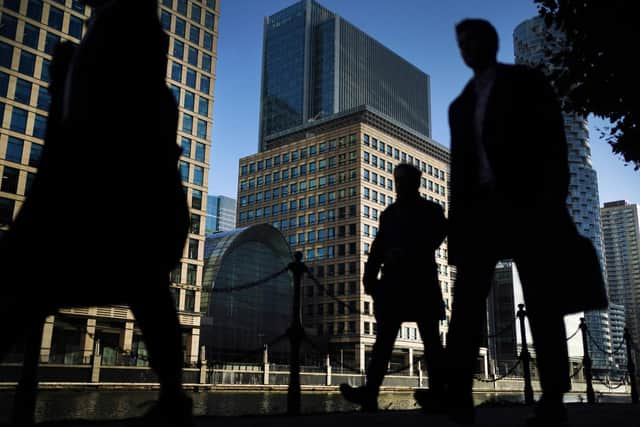Boardroom greed shows we are a land of grotesque extremes: Greg Wright
The indefensible scale of the pay rises awarded to Britain’s top executives shows we are two nations; with feeble corporate governance allowing boardroom greed to spiral out of control at a time when an estimated 120,000 children in Britain are living in the most extreme form of poverty. Bosses of Britain’s biggest companies saw their pay surge on average by 16 per cent last year as most workers’ wages failed to keep pace with inflation.
The High Pay Centre said chief executives of firms on the FTSE 100 had an average pay rise of around £500,000 in 2022. Unions said the data showed that Britain has become “a land of grotesque extremes”.
Advertisement
Hide AdAdvertisement
Hide AdMedian pay for a FTSE 100 CEO increased from £3.38m in 2021 to £3.91m in 2022, the High Pay Centre said. It represents a continued upward trend after it dropped to £2.46m in 2020 as companies were hit by the Covid-19 pandemic.


The research shows that the gap between bosses and workers widened further over the year. The median FTSE 100 CEO was paid 118 times the median UK full-time worker, up from 108 times in 2021. If nothing else, these figures demonstrate the absurdity of calling for wage restraint on low paid workers.
Another report from Buttle UK, which works with children and young people in crisis, uncovered a “stark and worrying” rise in levels of poverty among children. Its survey of 1,240 frontline professionals found that 60 per cent of the children they work with were living in destitution, up from 45 per cent reported the previous year and 36 per cent in 2021.
The charity, which published its annual State of Child Poverty report, stated: “By extension, the families our frontline workers are supporting includes approximately 122,000 children living in destitution. The year-on-year change between the last three survey cohorts dramatically illustrates the worsening circumstances for children in poverty.” In response, the Government claimed that the number of children living in poverty had, in fact, fallen by 400,000 since 2010. A spokesman said the Government was providing record financial support worth an average £3,300 per household and “bearing down on inflation to help everyone’s money go further”.
Advertisement
Hide AdAdvertisement
Hide AdYou might, of-course, argue that executive pay is simply a matter for the company’s board and none of our business. An individual CEO is hardly to blame for the scale of child poverty and many of them carry out philanthropic work to promote social mobility.
A company’s prime responsibility is to its shareholders, although the FTSE 100 has underperformed many of its global peers during 2023, which means it’s hard to imagine investors being keen to see such a generous payout to the top brass this year.
The fact companies approved these eye-watering pay rises for senior figures during a cost of living crisis shows they are hopelessly detached from economic reality. It’s unsurprising that millions of Britons have feelings of deep antagonism towards the corporate world.
Greg Wright is the deputy business editor of The Yorkshire Post